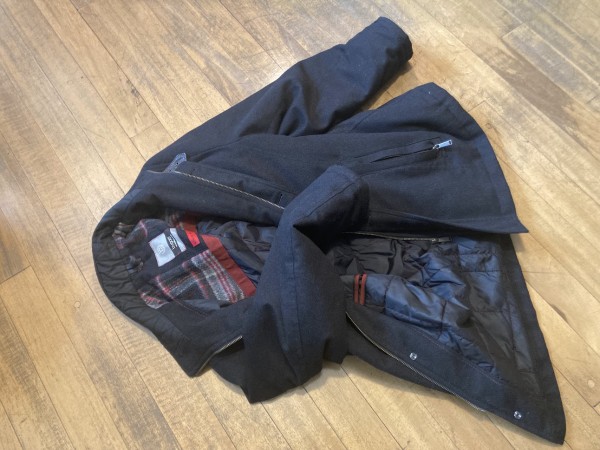
Three weekends ago, at the Eucharist corresponding to the Thirtieth Sunday in ordinary time (cycle B), we read the passage from the Gospel of Mark that tells us about the healing of the blind Bartimaeus (Mk 10:46-52). Here we do not wish to develop an exhaustive interpretation of the episode. Rather, we would like to focus on a very specific detail: when some of those who walk with Jesus encourage the blind beggar to get up, because the teacher is calling him, he, the text tells us, «Threw off his cloak, jumped to his feet and approached Jesus». We all know what happens next: Jesus asks him what is that he wants, Bartimaeus replies that he wishes to see again, Jesus tells him «Go, your faith has healed you», and Bartimaeus regains his sight and begins to follow Jesus on the road (thus completing his conversion, since at the beginning of the story he was sitting «by the roadside», where—if we remember the parable of the Sower—is where the first seed fell, and bear fruit).
The detail we want to underline is the precision offered by Mark that we have highlighted in italics: before getting up to go to meet Jesus, the blind man dropped his cloak. What does this cloak represent?
Most likely, in the evangelist’s mind, the cloak symbolizes Bartimaeus’ old identity (the one that kept him blind, having placed him on the roadside) which he had to abandon in order to follow Jesus with complete freedom. Or perhaps Mark wants us to think of the cloak that the prophet Elijah threw over Elisha (1 kings 19:19), representing the authority of the master, who passed on to his disciple: Bartimaeus’ gesture, to get rid of the cloak, would then signify his relinquishing of a position of power to which he, until then, had been clinging.
However, we would like to attempt another interpretation. Bartimaeus is a beggar, a homeless, and to go to meet Jesus he gets rid of his only possession. Indeed, the cloak was all that he to protect himself from the cold, the rain, the bad weather. Seen like that, Bartimaeus’ cloak appears to us as the symbol of those minimal and precarious possessions that the poor own. It represents the rudimentary well-being that our society grants to the poorest—in order to keep them quiet.
Our capitalist world, so much oriented towards the constant accumulation of wealth, allows the poorest to have what one could call a mirage of patrimony. If, in our increasingly unequal societies, vast numbers of people owned absolutely nothing, and were literally starving, there would be a social outbreak and a revolution every day. To avoid this, the economic system in which we are immersed tolerates that the most unfortunate have something: in the poorest and most vulnerable homes in the most peripheral neighborhoods of a large Latin American city such as Bogotá or Mexico (for example) there is a television , even if he it is an old one; and people have a cell phone, even if the screen is scratched, or half broken, or the device is discharging every ten minutes because the battery is already quite exhausted; and there is a refrigerator, and in the refrigerator there is some food, even if it is of poor quality, and not very healthy. This rickety television, this phone with the screen half broken, and this unhealthy canned food are the cloak with which millions of Bartimaeaus continue to protect themselves from the elements today. Crumbs that the unfair system allows them to enjoy, as long as, in return, they remain silent and docile.
The gesture of the Bartimaeus, throwing off his cloak, reveals the awakened person, the one who opens his eyes and realizes the infinitely fuller life that he could enjoy next to Jesus, and realizes the crumbs with which some people have tried to numb his conscience. Once he walks by Jesus, with his sight recovered, he will have acquired a much deeper sense of his own worth. He will have understood that faith demands justice. He will have understood that, from the eyes of God, we all have the right to a real well-being, not just an apparent one. Bartimaeus, in short, casts the mantle aside because he is now aware of his own dignity.









